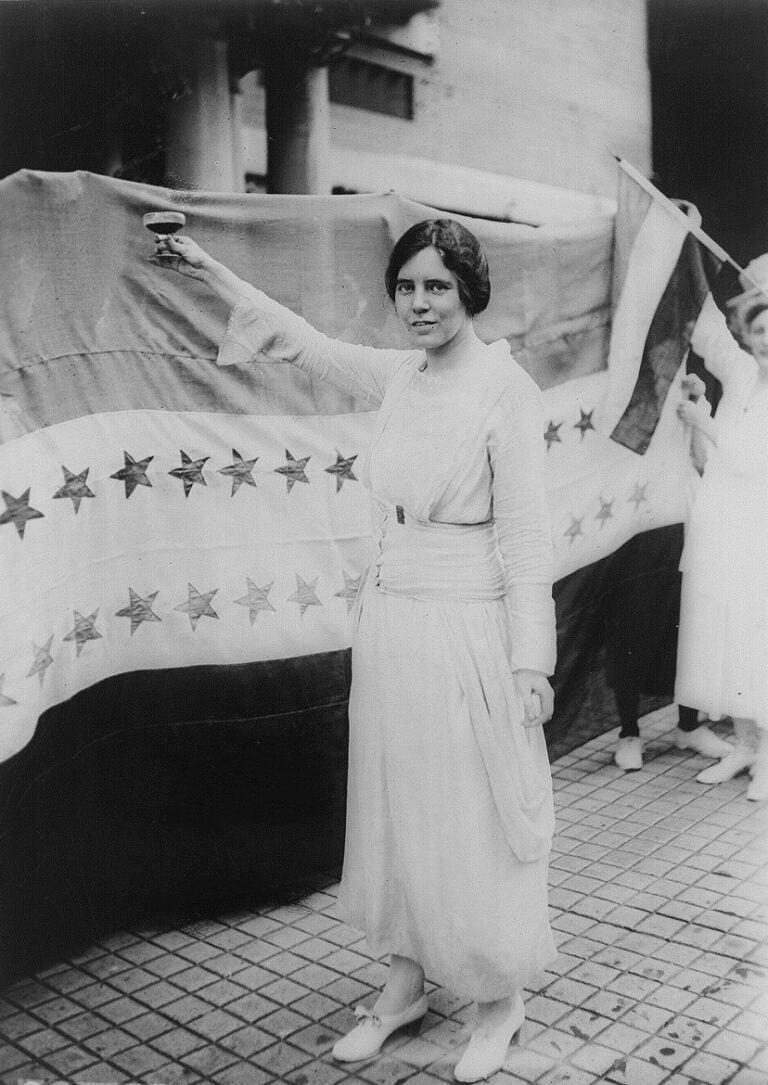Alice Paul
Alice Paul was one of the main leaders and strategists of the campaign for the 19th Amendment to the U.S. Constitution, granting women the right to vote.
Listen 0:59
Alice Paul toasting (with grape juice), the passage of the Nineteenth Amendment on Aug. 26, 1920. (Harris & Ewing, Inc./Public domain)
August is the Women’s Suffrage Centennial Month. To celebrate the passing of the 19th Amendment in August 18 1920 , that gave women the right to vote, we focus the next profiles to four women who dedicated themselves to fight for the rights of women to let their votes count.
It was not a victory for all, African American women were not allowed to vote in many Southern states until 1965.
Alice Paul was an American suffragist, feminist and activist who spent her life advocating for equal rights for women. Paul was one of the main leaders and strategists of the campaign for the 19th Amendment to the U.S. Constitution, granting women the right to vote.
In 1913 she became chairman of the congressional committee of the National American Woman Suffrage Association but soon differed with what she considered its timid policies.
She and a group of like-minded militants withdrew to form the National Woman’s Party.
Paul organized marches, protests, and rallies which led to her imprisonment three times. While in prison, Paul led a hunger strike, resulting in force-feeding and other forms of brutal treatment.
Undeterred , Paul authored the Equal Rights Amendment, which has yet to be adopted, to guarantee women equal rights under the law.
In January 1917, Paul and over 1,000 “Silent Sentinels” began eighteen months of picketing the White House, with signs such as, “Mr. President, how long must women wait for liberty?”
A note on the ERA:
The ERA was ratified by 35 states in the 1970s, but by the 1982 deadline was three states short of 38 needed to become a constitutional amendment. In January 2020, Virginia became the 38th state to back the ERA. Virginia’s decision does not seal the amendment’s addition to the U.S. Constitution. A deadline for three-quarters, or 38, of the 50 states to approve the ERA expired in 1982, so the future measure is uncertain and could be tied up in the courts for years.
WHYY is your source for fact-based, in-depth journalism and information. As a nonprofit organization, we rely on financial support from readers like you. Please give today.


